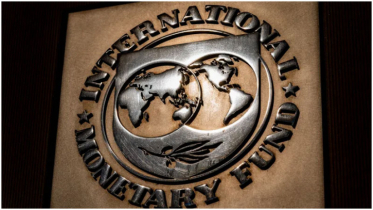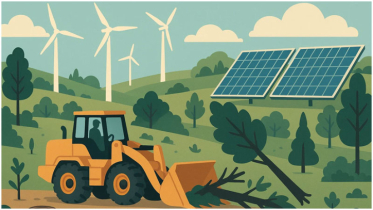The economy needs lots of rebuilding

The protests centring the anti-quota movement of the students have so far left more than 300 people dead and thousands injured in just 20 days across the country. The massiveness of the students' protests and the response to them by the authorities are seen as unprecedented in Bangladesh's history.
People from all walks of life have been longing for an immediate end to such deadly encounters on the streets that during the last couple of days assumed the character of a political showdown.
On Sunday, hundreds of thousands of protesters occupied the streets of Dhaka and other cities and towns. And the ruling party men -- many of them carried firearms --took to the streets to defeat protesters. As a result, the economic activities came to a grinding halt. Factories, shops, markets, and other commercial establishments remained closed for the last three weeks. The countrywide supply chain remains disrupted. The supply of essentials to Dhaka from the outside has been scanty, leading to a substantial price rise. The daily turnover of commercial establishments dealing with daily necessities has nosedived. The daily wage earners had financial difficulty since they had no work. Hundreds of them have gone back home.
The ongoing unrest is not only hurting every sector of the economy, directly or indirectly, but has also exacerbated the existing problems such as high inflation, declining reserves, soaring prices of fossil fuels, slowdown in foreign and local private investment, huge classified loans, and rising unemployment.
The deadly violence, hopefully, will be over as the demand of the students and masses is now fulfilled with the resignation of Sheikh Hasina as head of the government. Yet the events of the last three weeks will surely leave a deep scar in the nation's psyche. The economy has suffered a notable loss. At the end of the first phase of the violence, some trade bodies disclosed the losses they suffered. They will have to revise their estimates as and when the situation improves.
During the Covid pandemic, the economy suffered both locally and externally. For obvious reasons, earnings from exports and remittances declined, and domestic production suffered because of the supply chain disruption. But the country's image outside had remained intact. It earned international plaudits because of the resilience it had demonstrated against many odds.
That situation does not exist anymore, it seems. How can a country can maintain its image if it cuts off communication with the outside world for days together? The absence of internet has taken a substantial toll on the economy. Life without internet is impossible these days. That some IT professionals went to neighbouring Nepal and India to meet the demand of their clients abroad shows how important the internet is. Allegations have it that IT professionals in Bangladesh lost many clients because of the suspension of internet service at home.
However, disconcerting developments involving certain macroeconomic issues and a notable decline in the performance of key institutions, including regulatory ones, have eroded in the country's image on the external front. And, this is evident from the consecutive rating downgrades of by international rating agencies, including Fitch and S&P.
The Fitch downgraded the Bangladesh's credit rating despite the fact that the latter was making some improvements in terms of export receipts, remittance income and domestic resource mobilization during past few months. But other failings weighed on the rating exercise.
Foreign investors and lenders always value the country ratings while making their investment decisions. One can well imagine the impact of the ongoing developments on the external front that matters greatly in the management of the country's economy.
While both politics and the economy are crucial, the current situation has elevated politics to the forefront. A prudent political decision is now the key to resolving the crisis, and the fate of the country's economy hinges on this decision that the entire nation is eagerly anticipating.
The Bangladesh Bank last month unveiled a monetary policy for the first half of the current financial year, keeping the contractionary stance in place. The core objective of the policy is to tame inflation that has been hovering around 10 per cent for several months.
Given the urgency of the situation, a significant amount of reassessment and rebuilding is imperative in the aftermath of the recent unrest. This upheaval has impacted every aspect of national life, particularly the economy.
The monetary policy will necessitate a fair, objective review. The fiscal policy, the budget expenditures and many more economic issues will also demand a fresh look.
It's important to acknowledge that progress on economic issues will be stalled until the nation successfully navigates the current crisis of unprecedented magnitude.
Now that the main demand of the students and others opposed to the Awami League government is met, it is time to settle down and chalk out an appropriate course of actions for the economy. An interim government was set to be formed, according to the statement made Chief of Army General Waker-Uz-Zaman yesterday. Hopefully, law and order will restored within a short time and the interim administration will do what is needed to put the economy on track.
.png)




